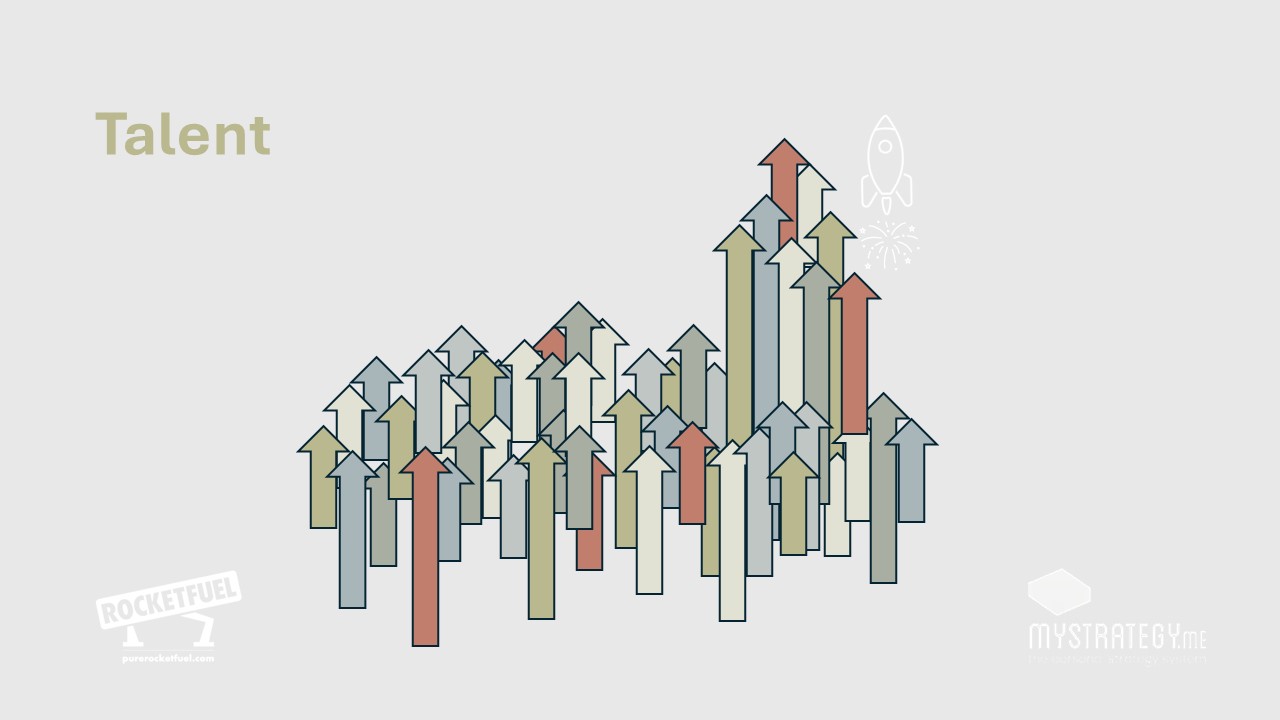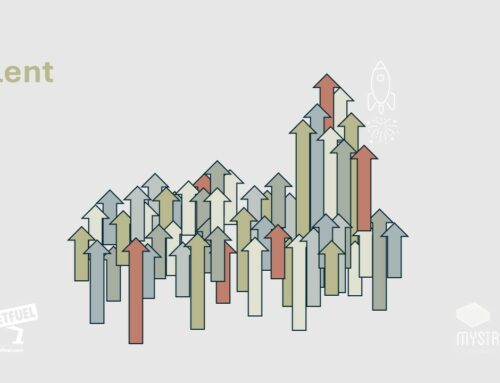
It is all too easy to sacrifice wellbeing to modern high-performance business culture, but also to sacrifice personal performance and development to misguided notions of wellbeing, says Leadership & Performance Coach, Davina Greene.
Hands up who has made it through the last six months without hearing the word ‘performance’ in a business context. Almost nobody? As expected.
Performance Versus Wellbeing
Businesses strive for strong performance, their leaders talking about little else. However, a culture of organizational performance and productivity is not always a culture of individual health and wellbeing.
To achieve performance, the individuals of whom the performance is expected need to be capable, mentally and physically, of providing the requisite levels of input. A “whole person” comes to work, and each “whole person” brings certain behaviors, expectations, habits, impacts and distractions, alongside differing levels of self-knowledge and self-care. Add to that the fact that each “whole person” has different levels of understanding of what is going on around them, with emotional intelligence often underdeveloped.
Executive Teams expect that any ‘human’ knowledge that managers receive during coaching (if provided) is being cascaded back down into teams as part of flexible Management Styles, for better relationships and understanding across the board. Often, those managers are not that interested – they never said they wanted to be a coach/trainer/counsellor/parent/cheerleader/shoulder-to-cry-on; rather, they very heavily favor their technical role.
Alternatively, it can be the case that all mention of Learning, Coaching, Engagement, Communication, and all those positive words that we’re supposed to provide for employees, are all merely decorative in a setting where the Executives are only interested in running a very-low-cost nuts-and-bolts version of a business, whilst pretending to clients and potential employees that it’s actually some sort of ‘luxury’ environment. We all know the swan analogy, with the calm surface and the legs flapping furiously underneath – and that’s exactly what happens to employees in these cases. And there’s only so long you can flap for, before keeling over with exhaustion.
Indeed, a 2015 survey by the CIPD, the organization for HR professionals in the UK and Ireland, shows that 43% of HR professionals believe that mental health in the workplace is getting worse. Of the hundreds surveyed, 51% believe they are losing working days to mental health issues. Despite allegedly rigorous recruitment and promotion processes, “poor management” is consistently cited as a reason for workplace stress.
Therefore, the issue of excessive stress being put on workers due to, for example, an excessive quest to keep costs down, or an inability to rein in the wild expectations of clients, or plain old Bad Management, is something that absolutely needs monitoring and addressing.
Wellbeing Versus Performance
On the other side of the coin, I have increasingly noticed a certain force of messaging developing in relation to Wellbeing that seems to be convincing less-experienced managers that their starting assumption has to be that everyone is a little bit “unwell”. For good people who want to progress and be challenged, this can be devastating – the manager put themselves in some sort of “kindly grandparent” role, endlessly protecting their team from opportunities by making an assumption that it will be “too much”, “too stressful”, or “unfair”.
Hence, my intro slides whenever I find myself group-coaching developing managers now include the statements “99.9% of the people you’re managing are well”, “You have the right to manage”, and “You’re expected to manage”. Whatever it takes to keep proper management and enthusiastic, self-driven individual growth happening in any organization!
If a person is capable of seeking a job, interviewing for a job, turning up for a job daily and doing it well – and perhaps giving occasional bits of feedback, cheek, or push-back – then, unless they have raised a wellness issue with HR or their manager directly – the assumption has to be that this is a potentially valuable employee who should be challenged and grown in the same way as everyone else. That a sensible, adult conversation is permitted, in order to find out if the person is simply happy where they are and doesn’t want to develop or move upwards/laterally (in which case, fine), should be obvious, but doesn’t seem to be a given anymore. Fear of having those conversations in the first place has most definitely set in, based on my experiences and my conversations with managers across a variety of companies and industries.
How Can Employees Monitor Wellbeing Levels At Work?
I believe that there are actually four distinct areas that an employee needs to be facilitated in understanding, and monitoring continuously, in order to maintain wellbeing: Body, Mind, Self and Colleagues. Miss one, miss the whole point. Certainly, if you’re not monitoring all of them, it’s going to be difficult to be considered “talent” – some aspect of you, or some group of your colleagues, is going to work against you, depending on how you’re treating them.
Sadly, it is often said that we are currently living amongst generations of humans who may never know what it is to feel well. People are increasingly in a work-trance, giving longer hours, barely moving, minimally hydrated and eating less-than-nutritious foods. This is not news – all of us have seen colleagues grow larger, develop black rings of exhaustion under their eyes, and crawl home to friends and family entirely devoid of energy. Yet, the cycle continues.
To the physical drain of stress, tiredness and demanding deadlines, add low behavioral understanding between colleagues, creating a minefield. We all know that positive working relationships are a key driver of employee wellbeing – however, niggling day-to-day agitations, misunderstanding and assumptions are, in my experience, far more cumulatively damaging than one-off, bigger conflicts.
On the other hand, perspective is key, and this is why I include Self-Knowledge and Perspective as key items in my Leadership Coaching model. If life is generally fine, but you’re holding back on your own development by using the word “wellbeing” a lot, have a think about that before it goes any further. Life has ups and downs, that’s normal. It’s nobody’s job to keep you happy and entertained all day every day, so consider that general “satisfaction” or “contentment” implies that you’re well. And, if that’s the case, and if you want to move forward in your career, consider if you have more capacity to show your skill, or if you are truly maxed out. It would be a shame to miss out on opportunities just because you’ve told yourself something that’s not quite true.

Leadership Coaching Model
What is Required for True Organizational Wellbeing?
Organizations need to minimize stressors from the outset by arming everyone with the behavioral vocabulary with which to understand interpersonal activity. Conveniently, much of this comes from Management and Leadership education, so Coaching can play a huge role. What traits are out there? Why do some excel together, while others clash? How do people see me? How should I handle a detail-craver, a control freak, a non-listener? Working relationships can only begin to grow quickly and constructively when obstacles to mutual understanding begin to be removed.
Unlike many, I don’t believe at all that an organization should have to feel like ‘family’. I simply believe that work is a place you should leave after you have worked your contracted hours (start-ups, emergency situations and Executive roles possibly excepted) and with your health, mental and physical, still firmly intact.
Too many businesses make the mistake of aiming continuous personal coaching at individual managers only; however, an employee can only solve a problem for herself if she a) realizes that a problem exists and b) can name it (connecting a particular feeling to a particular lacking nutrient; understanding a difference between introversion, shyness, and low confidence).
Real, solvable problems therefore go entirely unexpressed at ground level, in the absence of continuous education and focus, resulting in many employees feeling increasingly out-of-control. This is not a springboard for best performance.
Don’t give up on feeling well, sacrificing yourself to performance now rather than maintaining capability for performance over time, and favoring performance at work over performance at life. Is the effort taken from you matched by support given? Take responsibility and seek help as needed – now, not at 65!
The Rules
- Know your body: if you don’t feel as fit and healthy as you could be, take action!
- Know your mind: if you don’t feel as alert or self-aware as a healthy adult should, take action!
- Know yourself: outline a general strategic vision for life, know when you are off-track
- Know your colleagues: get familiar with traits and behaviors, to understand what is really happening around you.
- As an organization, arm your employees with knowledge and time for maintenance of day-to-day wellbeing, and encourage individual responsibility.
- As an individual, don’t absent-mindedly let talk of wellbeing minimize your growth opportunities. If you’re well, don’t forget it: use it, as we never know when our personal wellness might genuinely lessen, or disappear.
Interested in investing in your own personal – and personal strategy – development? Check out www.MyStrategy.me!
Share This!
About the Author



